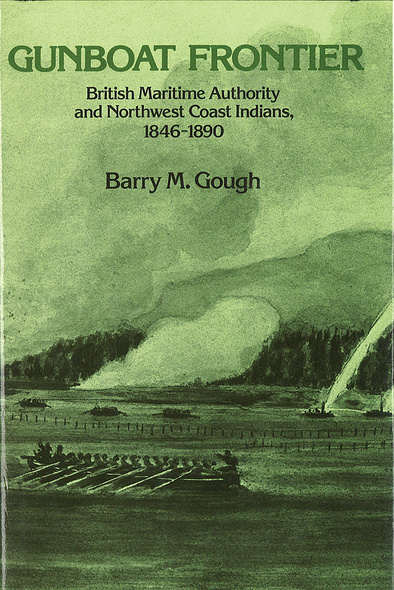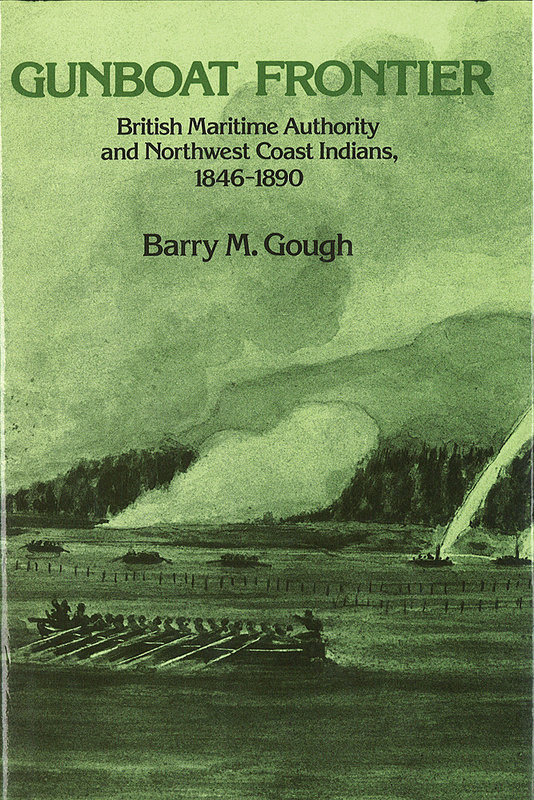Gunboat Frontier
British Maritime Authority and Northwest Coast Indians, 1846-1890
Gunboat Frontier presents a different interpretation ofIndian-white relations in nineteenth-century British Columbia, focusingon the interaction of West Coast Indians with British law andauthority. This authority was exercised by officers, seamen, marines,and ships of the Royal Navy on behalf of the colonial governments ofVancouver Island and British Columbia and, after 1871, of Canada.
Barry Gough presents new historical evidence provided by theAdmiralty Papers, an important source of information aboutnineteenth-century Northwest Coast Indian life. Drawing on these andother archival and governmental records, he chronicles encountersbetween the Royal Navy and the Indians over missions, piracies, Nativeslavery, liquor trafficking and crimes against persons and property,leading to the final cases of 'gunboat diplomacy' used againstlocal Indians in the late 1880s.
[Gough] has succeeded admirably in telling a neglected story and contributing to the diverse fields of maritime, Canadian, Indian, and British imperial history.
Barry Gough's case study is a major contribution to naval history and to understanding 'gunboat diplomacy.'
With this work Professor Gough joins the select ranks of the distinguished naval-imperial historians of the nineteenth century.
Illustrations
Preface
Part I: Company and Colony
1. Dwellers Along the Shore
2. Tide of Empire
3. "This Miserable Affair"
4. The Smouldering Volcano
Part II: Putting Out Fires
5. Policy Making
6. Of Slaves and Liquor
7. Among the Vikings of the North Pacific
8. Piracy and Punishment
9. Policing the Passage
10. The Pulls of Alaska
Part III: Extending the Frontier
11. The "Customary Authority" Under Dominion Auspices
12. At Heaven's Command
13. New Zones of Influence: Nass, Kimsquit, and Skeena
14. Retrospect
Appendix
Abbreviations
Notes
Bibliography
Index





